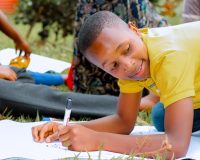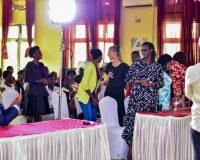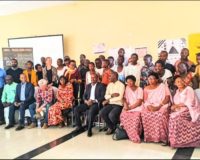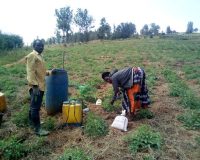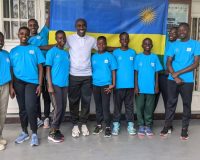Economic Empowerment and Covid 19 pandemic
During covid19 pandemic, Agriculture has been a sector that remained operational in Rwanda. Economic empowerment as one of UYISENGA NI IMANZI programs, 24 groups with 181 young adults were formed, for a radical change in the traditional work (informal) to survive. Our model focused on groups, seizing their engagement in farming activities and our Agronomists initiating new ways of working both online and on field..
Mindset change
• We organized training for three months on soft and agronomic skills;
• We provided support to 16 groups during harvesting period and
• We empowered them to analyze and evaluate their harvesting.
This model was made effective by field facilitators who understand the context and were empowered to maximize the yield regardless of the market. To overcome challenge in calculations that may result to incorrect harvest, a Professional trainer was hired to support them in the calculation of their harvest and profit, the seasonal and investment planning.
Farmers’ mindset has changed towards agricultural practices, they no longer wait for the rain to plant, instead they use irrigation system though it is still a challenge in some places but they try to adapt to the climate change. We have mobilized 554 participants in this new cohort, adding up to 1006 participants of two cohorts.
Monitoring the progress in 2020
As we are working in cohort, we are doing groups screening to evaluate committed groups to continue with the next steps. Adequate tools support the progress to coach those with high performance, and correct those less committed. During this period, 16 groups have been expelled and suspended, while others have been encouraged to create networks for sustainability. So far, we have provided inputs to 554 new groups including people with hearing impairment, and more training were provided on saving, group’s maintenance and sustainability. This went along with the SAIs coaching to facilitators and other potential group leaders, on the use of smart phones for better and quick information sharing
.
UNM Tools
UYISENGA NI IMANZI has used for this program SAI electronic online data collection tool thanks to to use of technology. Our Staff have been trained on how to use this tool before we introduce it to facilitators. This will ease the work of typing SAIs information that were taking long to be entered and analyzed, it will minimize the use of papers and allow the safety of information.
Additionally to that, the training brought skills on gender which will be considered during the project cycle, taking into consideration, gender dimension, contributing to sexual abuse, prevention of early child pregnancies and birth control among participants (young adults and adults). The program has been so inclusive and we got positive feedbacks from leaders, participants and partners.
Mobilization and Cooperatives
More cooperatives were formed from small groups to sustainable agribusiness, and we proceeded to the establishment of strong cooperatives for better working system; when agriculture is taken as a business a good business. We are convinced that our wellbeing cannot be reached without sustainable cooperatives and improved agricultural practices. For this reason, we train young farmers on good practices to boost the quality and the quantity of production for more profit. We had also an opportunity to train farmers on new products (mushrooms) for their nutritive value and profitability.
Acknowledgment
UYISENGA NI IMANZI is grateful for all partners in the farming sector, mainly World Jewish Relief, our main Donor and Mentor together with their partners; their support to Enable Young Farmers on the road to sustainability is very inspiring. Lemon Aid and Chari Tea Foundation which supported the Farming program for Transformation has opened minds for new opportunity and networking. Rwamagana district is facilitating the implementation of projects, providing technical support when necessary, but most importantly offering a friendly environment on the road to self-reliance.
Last but not least all participants who have accepted the model and contributed to tangible outcomes.








